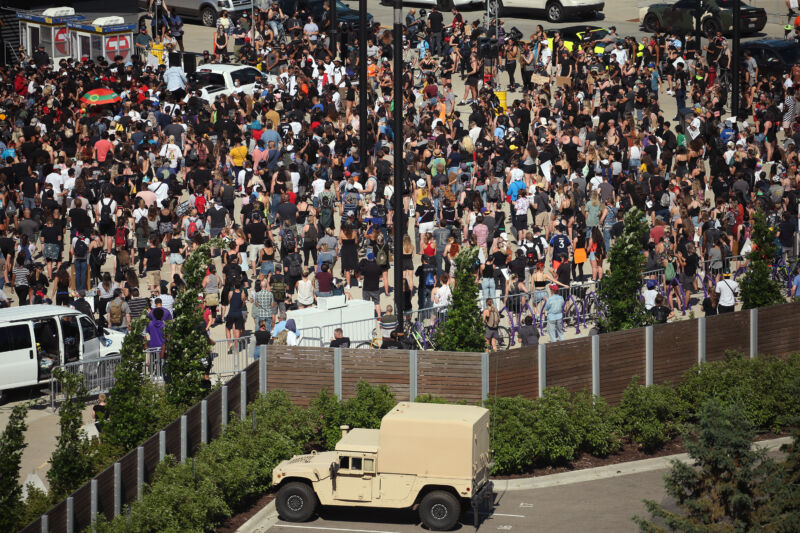
Secretive facial-recognition firm Clearview AI is facing new questions from lawmakers, in addition to lawsuits, as concerns about its software are amplified during the wave of nationwide protests against police brutality.
Sen. Edward Markey (D-Mass.) today demanded to know what law enforcement agencies are working with Clearview potentially to identify protesters who are out in support of black communities and against police violence. “As demonstrators across the country exercise their First Amendment rights by protesting racial injustice, it is important that law enforcement does not use technological tools to stifle free speech or endanger the public,” Markey wrote in a letter to Clearview (PDF). “The risk of such omnipresent surveillance also runs the risk of deterring Americans from speaking out.”
Law enforcement agencies in several cities where protests have taken place are using digital surveillance tools. According to a BuzzFeed report, many law enforcement agencies in and near Minneapolis—where current national protests began after police were recorded killing George Floyd—use Clearview and other similar platforms to identify individuals.
Clearview operated largely without the public knowing about it until January, when The New York Times published a detailed report about the company. The Times described Clearview as a “groundbreaking” facial-recognition service, which allowed a user to match an imported photo against a database of more than 3 billion images.
Those facial images against which Clearview matches imported photos were scraped from basically the entire rest of the Internet, including Facebook, Google, YouTube, LinkedIn, and others. Once the report drew public attention to this, those companies’ legal teams all sent Clearview demands to stop at once.
The company claimed to have about 600 law enforcement customers at the time of the NYT report, but it has repeatedly refused to make public its client list, including in response to previous requests from Markey’s office. However, after obtaining a leaked client list from a data breach, BuzzFeed in February reported more than 2,200 agencies, businesses, and individuals had performed searches on Clearview’s platform.
In addition to requesting a client list again, Markey’s newest letter explicitly asks Clearview if it will prohibit its customers from using its technology “to monitor or identify peaceful protesters” and if it will expand the mechanism Illinois and California residents can use to have their images removed to residents of all 50 states—and if not, why not?
Illinois law does regulate the collection and use of individuals’ biometric information, and late last month the American Civil Liberties Union filed a lawsuit against Clearview in Illinois alleging violations of that law. “Clearview’s business model appears to embody the nightmare scenario… a private company capturing untold quantities of biometric data for purposes of surveillance and tracking without notice to the individuals affected, much less their consent.”
The ACLU suit is not the first Clearview is facing. Vermont Attorney General T.J. Donovan also filed suit against Clearview in March, alleging multiple violations of state law regulating data-broker behavior.
https://arstechnica.com/?p=1681942

